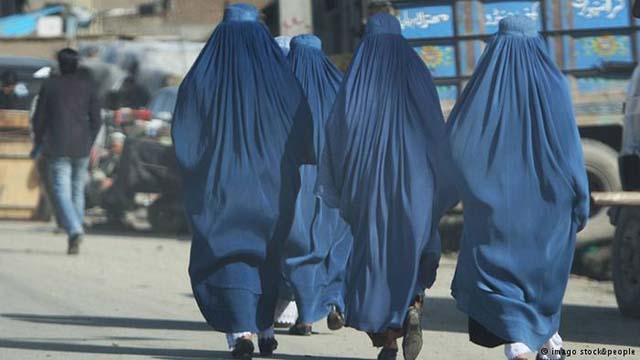Constitutionally, only competent courts have the authority to prosecute a suspect or criminal. The Constitution of Afghanistan states in article 25 as, “Innocence is the original state. The accused shall be innocent until proven guilty by the order of an authoritative court.” Therefore, desert court has no legal basis and it is considered crime in the eye of law.
Reportedly, an angry mob lynched a 19-year-old girl, Rukhshana, about a couple of weeks ago in Ghor province for eloping with the man of her choice. Rukhshana was forced to live her whole life under the same roof with an undesired man – a traditional custom which holds sway in Afghanistan. After turning her suitor down and eloping, a number of turbaned men arrested and stoned her in cold blood. The Taliban are said to be behind the incident.
Members of the Afghan parliament’s Women’s Affairs Commission condemned the issue and urged the legal and judicial bodies to bring the perpetrators to justice. “Two incidents happened during the past three months in the country.
The first case was the public lashing of a woman in a government controlled area. The government judge ordered the lashing verdict and the second tragedy is the stoning of Rukhshana,” commission member Ruqia Nayel is quoted as saying.
Violence against women is widely practiced in the patriarchal system of Afghanistan. Although, there have been improvements regarding women’s rights within the last decade, nonetheless, a number of women fall victim to social and domestic violence with impunity – mainly in the Taliban dominated areas where women are left at the mercy of desert court: one is punished without the verdict of an authoritative court, fair trial or legal judgment or sentenced to death for committing a misdemeanor or petty offense which is less punishable by law.
Women are changed into scapegoat in remote areas. I remember vividly the miserable story of a rape victim in Daikundi Province. Shakila, a teenage school girl who was living in Korga village, always had to pass by her neighbors’ houses on her way to school. One morning, she was waylaid and sexually assaulted by an octogenarian in her neighborhood. The man did this to avenge his wife’s rape many years ago by the father of the same girl. Although, Shakila’s father had been trialed and held in detention for a long period, for his crime, the old man still kept his animosity.
Following the incident, Shakila’s father turned lunatic holding his daughter’s hand and taking her from door to door to raise his voice. He was smoldering with strong pain and boiling anger and talking with a lump in his throat about what was done to his innocent daughter. Of course, his words could not articulate his burning emotions. He was trembling with pain and rage, talking to whoever passed him. Whenever Shakila’s father was talking about the incident, she was keeping her distance, standing still and hanging her head. Can you imagine the heartache felt by her mother?
Women’s freedom is curtailed to a large extent. Men and women are entitled to exercise their rights to freedom equally and, constitutionally, the state is supposed to protect their liberty. Article 24 asserts, “Liberty is the natural right of human beings. This right has no limits unless affecting others freedoms as well as the public interest, which shall be regulated by law. Liberty and human dignity are inviolable.
The state shall respect and protect liberty as well as human dignity.” This article also points out that one can enjoy his/her liberty within limits i.e. it must not restrict the freedom of the rest.
Based on a source, many risk factors increase the chance of Afghan women experiencing domestic violence. Some of these include being in a forced, underage, or polygamous marriage, living in rural communities or communities with greater Taliban control, and the presence of strict gender role perceptions. Factors that decrease the chance of domestic violence include employment of spouses, consensual marriage, literacy of both men and women, living in urban communities, enjoying economic stability, and perceived satisfactory gender relations.
According to women’s rights advocates, a deteriorating economy and growing insecurity have contributed to the rise in reported incidents. They also point to evidence that laws aimed at protecting women have proven notoriously hard to implement.
The erosion of religious values, absence of humanity and decline of moral standards are the great tragedies in our individual and collective life.
The current violence taking place against women demonstrates our patriarchal structure. In some villages, since traditional culture has been handed down from one generation to the next, it is deemed sacred whether it is void of ethical code or religious values. Women are considered inferior and their natural rights and dignity are trampled upon – while they are endowed with inviolable rights and held in high esteem in Islamic Sharia. In short, a number of traditional practices are contrary to religious law and Afghanistan’s Constitution.
Since the Ulema Council plays a fundamental role in the community, it will have to condemn the violence against women and raise the public awareness of women’s rights and dignity from the religion’s perspective.
In other words, the clergy should carry out their responsibility and religious obligations concerning the issue. Their guidance will mitigate the pain and anguish widely suffered by Afghan women.
It is mullahs to ameliorate moral and cultural deviances in an Islamic community.

